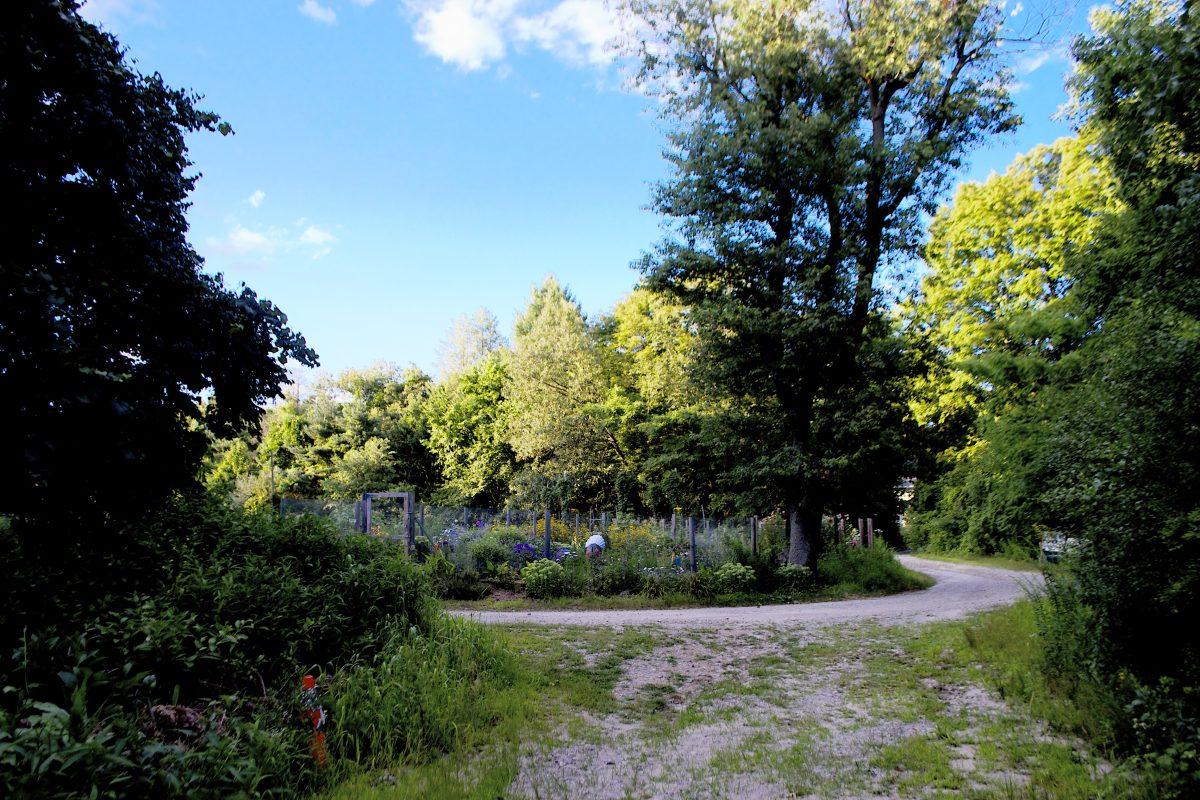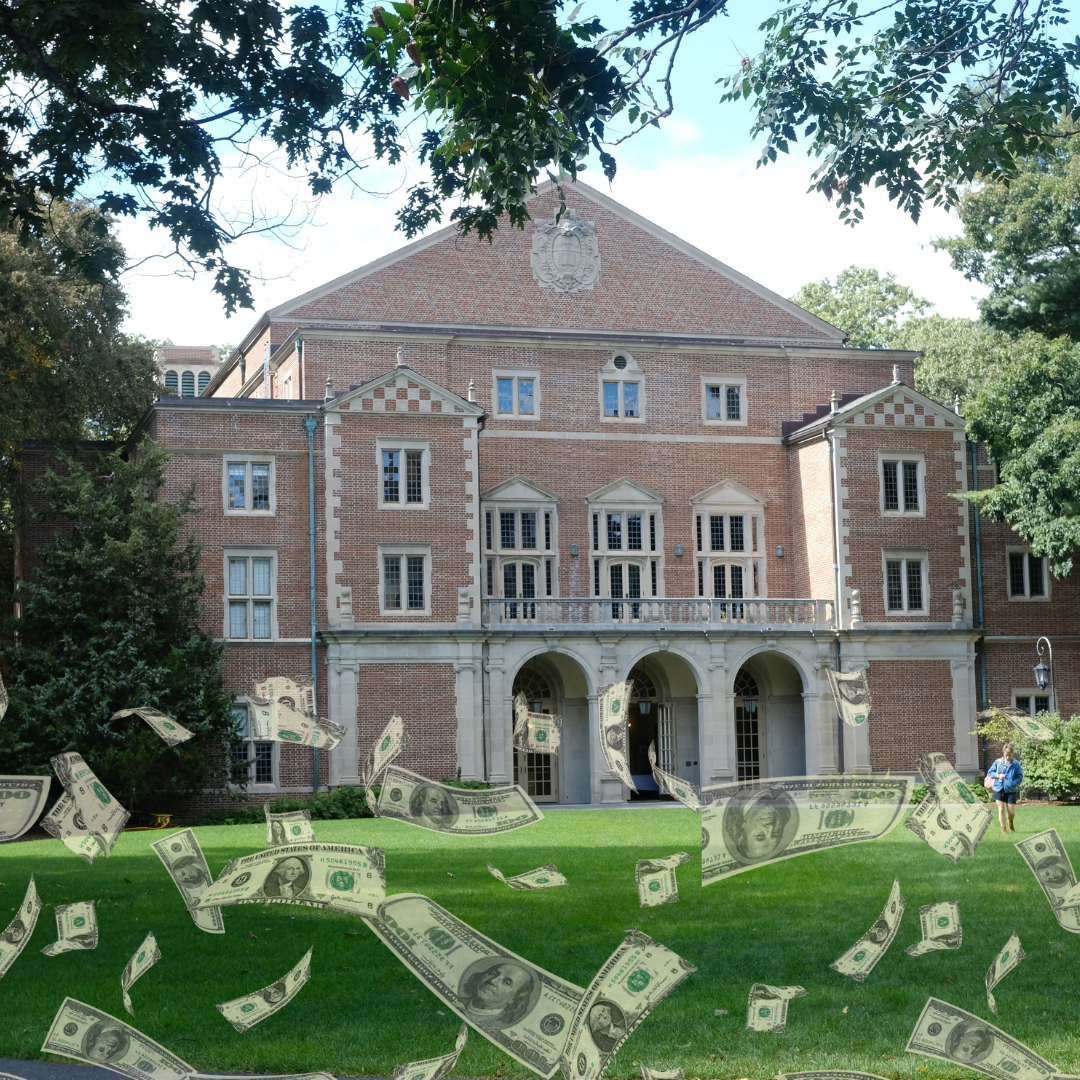Wellesley College has plans to make the North 40, a triangular 46-acre parcel of land north of campus, available for purchase by the end of this fall. In addition to North 40, the College also has plans to sell another piece of land, Rollins Lot, located on Washington Street. Proceeds from both plots of will go toward Campus Renewal, formerly known as Wellesley 2025.
The land was given to the College through a deed written by Henry Durant, the College’s founder, in 1837. The College filed a petition in April to the Massachusetts Supreme Judicial Court requesting that it be released from the selling and leasing restrictions placed on it by Durant’s indenture.
Durant’s objective was that the land serve the students’ needs; the deed restricted land use to scholastic purposes and set the maximum lease term to seven years. In regard to the land, he wrote on the deed that “such changes and improvements in the cultivation may be made and such new buildings may be erected thereon for the purposes of the College as the trustees may think best.” Just two weeks after filing for the restrictions to be lifted, the College was notified of the Court’s approval of its request.
In late April, town residents learned of the College’s request to the Court, and in early May, the College notified the town and its residents of its plans to sell the land possibly to a developer. Ben Hammond, vice president for finance and officials to discuss the future of the land at a community meeting in early May.
The inhabitants of the Town of Wellesley are concerned about the future of the land and how the sale of the property would potentially impact them.
 A group of concerned residents formed Save the North 40 in June. The organization is dedicated to protecting the piece of land. Save the North 40 member Jack Davis surveyed residents of the two neighborhoods nearest to the area. 50 percent of residents responded from approximately 120 occupied Woodland households. 43 percent of residents responded from nearly 200 occupied Weston households.
A group of concerned residents formed Save the North 40 in June. The organization is dedicated to protecting the piece of land. Save the North 40 member Jack Davis surveyed residents of the two neighborhoods nearest to the area. 50 percent of residents responded from approximately 120 occupied Woodland households. 43 percent of residents responded from nearly 200 occupied Weston households.
Over the summer, the College began exploring possible uses for the land, including development by a private company. Development refer to any action that would change the landscape. Many town residents oppose development, — especially by a private party — because they feel they would have less of a say on what the land would be used for.
“We’d prefer the town buying the land for public use instead of a private developer purchasing it because that way we’d have more voice as citizens,” town resident Matthew Hornung said.
Out of concern, the town put together a steering committee to investigate alternative uses for the land. The steering committee includes representatives from the two neighborhoods adjacent to the North 40, Weston neighborhood and Woodland neighborhood. These neighborhoods would be affected the most if the College ultimately sold the land to a developer. The College has scheduled another meeting two weeks from now about potential use for the area.
Although students were invited to learn about the North 40 during a town hall meeting on budget planning and campus renewal last spring, a number of Wellesley College students are still not aware of the land and what it houses.
“I wasn’t really clear about what the College was selling. I knew that it was selling land. The reason that I know what the land is used for is because someone else informed me,” Juliana Robeson ’16 said.
Over the summer month, the College reached out to town residents who live next to the North 40 about a possible noise disturbance due to environmental research being conducted and to inform residents that use of Weston Road community garden, which sits on the land, would continue for another year. The community garden has a waiting list of about 60 families hoping to rent plots, and its produce is used by the Wellesley Food Pantry. The Wellesley College student organization Regeneration also maintains its farm on the property. Hammond stated that the College will find a new place for the student farm if their farm is affected by the sale of the North 40.
“Should the community gardens be affected by the reuse of the North 40 in later years, the College is open to discussing alternative locations for Regeneration, likely on campus, as we discussed with them, and committed to last spring,” Hammond stated.
The North 40 is used by town residents for walking, bird and nature watching, and cross-country skiing, among other recreational activities. Wellesley town residents recognize how generous the College has been.
“Wellesley College has been very kind to the town to let us use it,” said Steve Grossman, Wellesley resident and organizer of the Save the North 40 effort.
Jack Davis, another town resident and organizer, concurred.
 “Residents understand that the land belongs to the College, but at the same time, we don’t want to see it be developed and think a better solution can be made,” Davis said.
“Residents understand that the land belongs to the College, but at the same time, we don’t want to see it be developed and think a better solution can be made,” Davis said.
In comparison to surrounding towns, the Town of Wellesley is in a relatively dense area with little open space for public use. According to the Natural Resources Commission, only 40 percent of Wellesley’s open spaces are protected.
One resident stated on the survey, “We need to be very careful about developing this area. Open space is hard to come by. Once it’s gone, it’s gone.”
Town residents have voiced many concerns about the impact of development on the North 40. Top among these are environmental concerns about the preservation of land. The North 40 is a bird and wildlife habitat and home to diverse vegetation.
The impact of development on water quality is another concern residents have, as wellheads and an aquifer sit on the North 40. Residents are concerned about the former town dump potentially releasing environmental toxins as well as the associated costs of clearing and assessing the former dump.
Residents are also worried that development of residential homes will dramatically increase traffic. Traffic on Weston Road is a primary concern to Weston residents. Approximately 80 percent of Woodland residents surveyed strongly agreed that they would be upset if new roads entered their neighborhood. Additional residential housing is least desired by both neighborhoods.
“Development would add crowdedness, congestion, increased traffic and overall lower quality of life. In a spiritual sense, it is very important that people have the respite, retreat and natural space,” Davis said.
The town administrators and residents differ in opinion as to what they would like to see happen to the North 40. The Town of Wellesley is considering purchasing the land. But it is unclear if the town can afford it. As of this week, the price of the North 40 can only been speculated on, since it is not currently on the market. Nevertheless, the town has appraised the area at $25,277,000.
The North 40 is important to the town of Wellesley because it is one of the last few substantial tracts of undeveloped land that the town could purchase and use for convervation. However, problems remain. Purchasing for the intent of conservation could potentially cause roadblocks if the majority of residents change their mind and chose to develop the North 40 in the future. Currently, some residents want a senior center, athletic fields or a new school. Town officials are reluctant about the College selling the land to developers because of growing concerns that added infrastructure could lead to more costs for the town. Wellesley’s Department of Public Works approximates that it would cost the town $200,000 annually to maintain new roads.
Another option the College has, apart from selling the land to developers or to the the town of Wellesley, is to sell the land to a conservatory. A number of residents have expressed that this is the best solution. Eighty-one percent of surveyed Woodland neighborhood residents rated preservation as the most desirable solution on the survey, while 60 percent of Weston residents rated it as most desirable.
“Conservancy would be great answer because the College would be able to sell the land to fund its project, and the land would still be preserved,” Grossman explained.
Davis expressed similar views.
“Selling the land to a conservatory is a perfect solution if the College wants to sell the land since they would get money to finance their renewal and residents would see it preserved. It is good for everybody,” Davis said.
Conservancies are usually funded through an alliance of various nonprofits and private-sector groups.
However, Grossman added, “It takes time to put together a conservancy. Time is not on our side. The College is moving very fast.”
Sale with a private developer might offer the College more funds than a sale with a conservancy. The College’s F.A.Q. site states that, “Wellesley College is committed to reviewing all proposals and possibilities for the land with a great respect for the community. At the same time, the trustees have an obligation to best maximize all college assets in a way that supports the College’s academic mission.”
The College has plans to issue a request for proposals, which will help it determine the value of the land as well as identify the most suitable purchaser.
“Our goal is to identify a buyer [or] lessor that will be a responsible steward of the land and a good neighbor to all of us,” Hammond said. “To that end, we are actively soliciting proposals from conservancy organizations.”
Presently, the College has made no decisions regarding the North 40. The Board of Trustees is expected to confer by the end of October to review options. Bottomly will lead a Town Hall meeting during community time at 12:30 p.m. next Wednesday in Jewett Auditorium.






